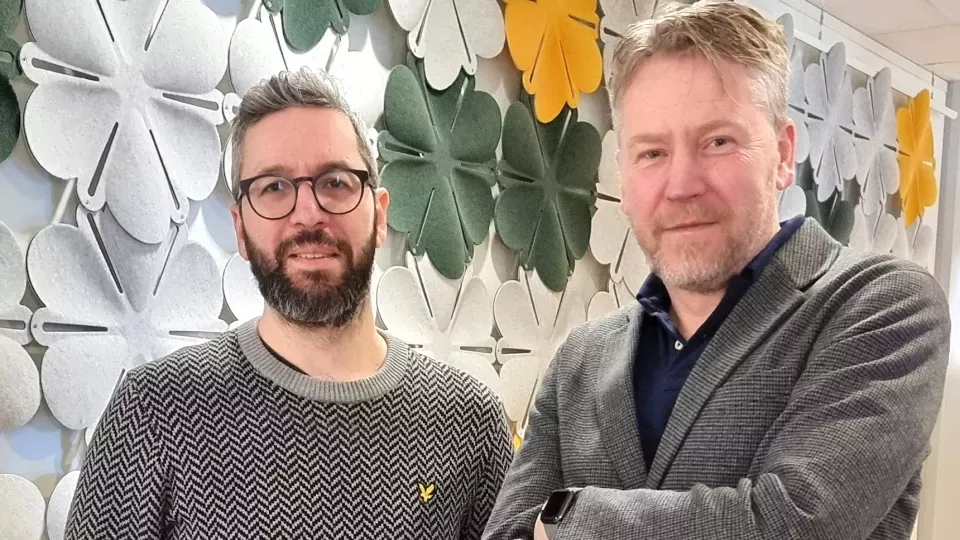“The entire research institute is built around the idea that the world is troubled. We could be ten times the size we are, there is such an enormous amount to do. It is a shame that the need exists, but as researchers, it is exciting,” says James Pamment, the institute’s director, who is responsible for the institute ending up at Lund University.
His colleague Jesper Falkheimer, professor of strategic communication, adds:
“We are certainly affected by the global situation and we are increasingly researching malign information influence activities, disinformation, fake news and propaganda. There is a huge interest and we often receive invitations to come and give lectures. They come from a range of organisations, from primary and secondary schools and public authorities to businesses, including those from other countries.
Established two years ago
The Psychological Defence Agency was established less than two months before Russia attacked Ukraine on 24 February 2022. Later that same year, the research institute at Campus Helsingborg was launched.
Director James Pamment leads a Horizon project on information influence activities. The project got underway in February this year and will run for three years. Researchers from seven EU countries and the UK are involved. The project grant from the EU is EUR 3 million.
“Identifying influencing campaigns and disinformation s fairly easy, but finding out who is behind them is more difficult. What we are doing in this Horizon project is finding ways to show who is actually behind the campaigns. Our results are meant to be used by institutions within the EU when investigating influencing campaigns,” explains James Pamment.
An interdisciplinary research field
The Research Institute for Psychological Defence is part of the Department of Strategic Communication. It is an interdisciplinary institution, which according to Jesper Falkheimer focuses on internal and external crisis communication, but in recent years has been increasingly concerned with information influence activities and disinformation.
Looking even further back, he sees another, perhaps more fundamental change in the research field. Up until ten years ago, the focus was on the positive effects of digitalisation and what can be described as a communication revolution, not least through social media. It was about citizens’ improved opportunities to participate in societal debate and to become involved. This was something that was viewed as the path to democracy in many countries.
“Now it is far more concerned with the negative consequences and dark side of digitalisation and AI in an age that might be called the propaganda renaissance,” says Jesper Falkheimer.
"Great opportunities to develop the institute"
Researchers at the institute work partly on producing knowledge overviews and gathering international research, and partly on empirical field studies. It is mostly Lund University researchers, coming primarily from the fields of political science and communication science, who are active at the Psychological Defence Research Institute. However, there are researchers from other higher education institutions in Sweden and abroad who are tied to it as well, mainly through the Horizon project.
“We see great opportunities to further develop this at Lund University and to involve researchers from more faculties,” says Jesper Falkheimer.

